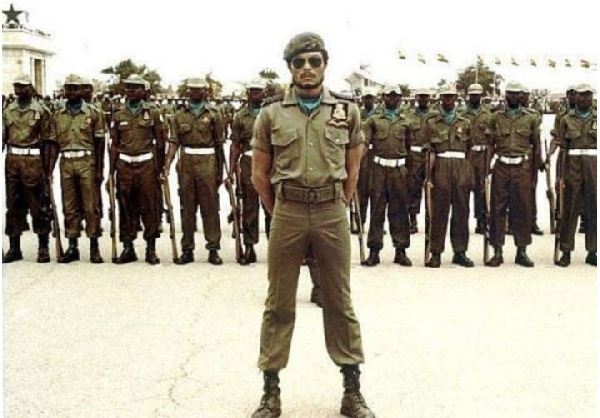Ambassador Victor Smith, a one-time aide to former President Jerry John Rawlings has stated that the conditions that led to the late president’s second coup d’etat exist today.
He identified corruption and failure by the political class to redeem promises made to the electorate as factors that forced Rawlings in December 1981 to overthrow the democratically elected Hilla Limann government.
Smith shared a range of views last Friday, November 12, 2021, on Accra-based Class TV’s morning show programme that was dedicated to celebrating the first year anniversary of JJ Rawlings.
Asked by host Nana Yaw Adwenpa on the political segment of the Dwabre Mu show why Rawlings has decided to stage a comeback just two years after handing over to the Limann administration, he stated: “There were certain conditions in the country (relative to) the management of the country’s resources by the leadership at the time that gave grounds for somebody to try and correct it, bring sanity. Correct the sufferings, the distress that Ghanaians were going through.
“Those conditions exist today, people are complaining. Our resources (our monies) are being dissipated in such a way (that) people do not understand what is going on,” he lamented.
He stressed that it was the responsibility of the government to exhibit openness and accountability so as to avert any thoughts by persons he described as “adventurers.”
“Leadership owes it to people to reach out to the people and let them understand why things are as they are now and what steps they are taking to rectify it for the people. If you don’t do that, you give room for any adventurer to step in, that is what happened then.
“If Limann and his group probably got control of the affairs of state, the governance, if they had worked hard, maybe this 31st would not have happened. So it happened because Ghana was in a state of disarray. Those conditions exist today, in different forms, maybe worse now,” he added.
Rawlings, Ghana’s longest-serving head of state died in November 2020 at the Korle Bu Teaching hospital. His family and the National Democratic Congress, NDC, held the first-anniversary celebration last Friday with Vice President Mahamudu Bawumia and top government officials in attendance.
Who was JJ Rawlings?
The son of a Scottish farmer and a Ghanaian mother, Rawlings entered the Ghana Air Force, graduating in 1969.
A decade later, as a senior officer in the air force, he overthrew a military government, handing over power to a civilian leader.
He oversaw the execution of several former heads of state and army generals for corruption but expressed some regret about the killings. Later the execution by firing squad of Supreme Court judges also left a stain on his legacy.
“I am still aware that we in Ghana do not like bloodshed,” he said at the time.
“I personally do not like it. I mean, I’d rather, let’s say, confiscate a man’s wealth and bring him down to the level to which he’s brought us just to give him a taste of what life has been, what he’s done to us.”
In 1981, he led a second coup and was the head of a military junta until introducing multi-party elections in 1992, when he was first elected president.
He stepped down in 2001 after serving two terms but continued to wield a strong influence in the country.
He began his time in power as a committed socialist but later introduced free-market reforms. He ushered in a long period of political stability after a tumultuous series of coups in the 1960s and 1970s. In later years, Rawlings campaigned for African nations to have their international debts written off.
